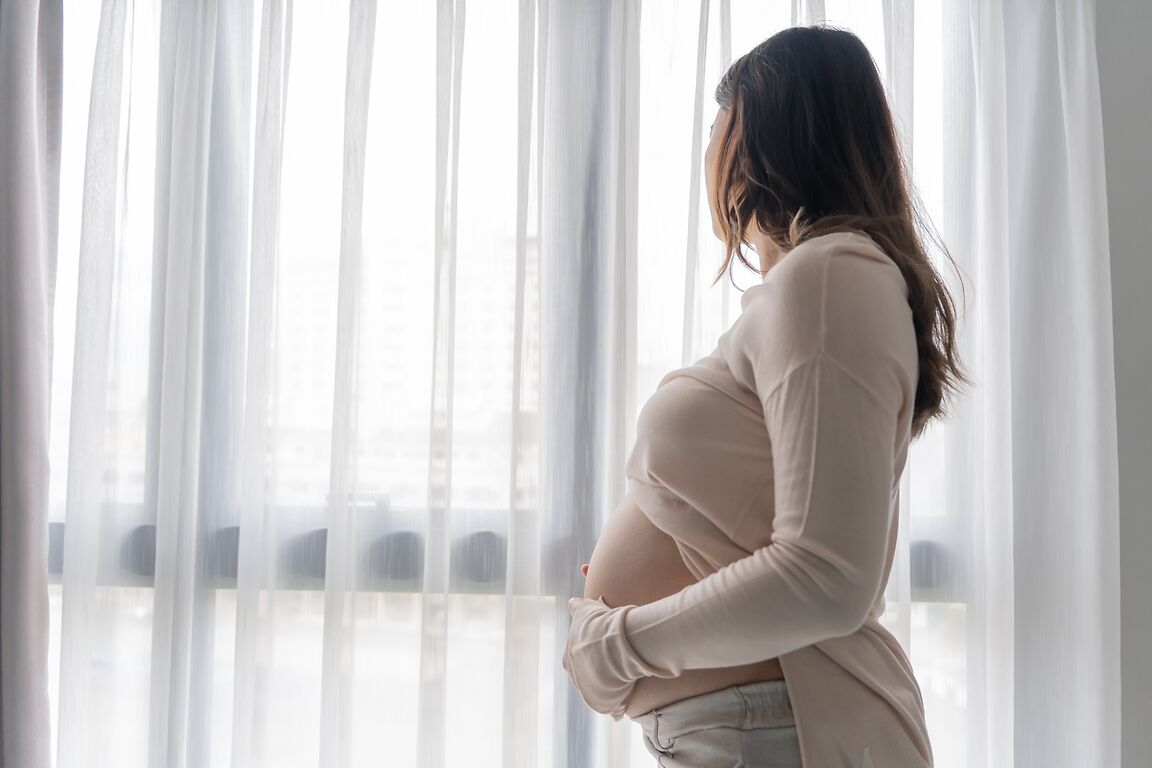A recent study suggests that pregnancy may offer some protection from developing Long COVID, a condition that can linger long after recovering from a SARS-CoV-2 infection. Long COVID is characterized by a range of persistent symptoms, including fatigue, muscle or joint pain, difficulty breathing, cognitive impairment, and disrupted sleep. The study, which was led by researchers from Weill Cornell Medicine, University of Rochester Medical Center, University of Utah Health, and Louisiana Public Health Institute, sheds light on an important aspect of Long COVID that has been largely overlooked—its impact on pregnant women.
 Photo Credit: Lee Charlie/Shutterstock
Photo Credit: Lee Charlie/Shutterstock
A Critical Gap in Long COVID Research
For much of the pandemic, research on Long COVID has focused primarily on the general adult population, with limited information about how the condition affects pregnant women. According to Dr. Chengxi Zang, an instructor at Weill Cornell Medicine and co-leader of the study, this lack of data left clinicians without evidence to guide care for pregnant women who contracted COVID-19. The study, which was published in Nature Communications on April 1, aims to fill this gap and provides new insights into the potential risks and protective factors for pregnant women.
Dr. Zang explains, “We hope this new data will help clinicians develop better Long COVID prevention and treatment strategies for pregnant women and help those most at risk.” This research is crucial in shaping the way healthcare providers approach the ongoing challenges of COVID-19 and its long-term effects on maternal health.
Digging Into the Data
The study analyzed data from two large electronic health record-based research initiatives: the National Patient-Centered Clinical Research Network (PCORnet) and the National COVID Cohort Collaborative (N3C). Researchers reviewed the health records of approximately 72,000 women who were infected with SARS-CoV-2 during pregnancy between March 2020 and June 2023. They compared these cases with data from around 208,000 non-pregnant women who developed COVID-19 during the same period.
The team found that pregnant women had lower rates of Long COVID compared to their non-pregnant counterparts. Specifically, the study revealed that 16 out of 100 pregnant women developed Long COVID compared to 19 out of 100 non-pregnant women. These findings were consistent across both research cohorts and supported by various methods used to define Long COVID. The results suggest that while pregnant women are still at risk for developing Long COVID, their chances are significantly lower than those of women who were not pregnant.
Vulnerabilities and Risk Factors
Although pregnancy appears to offer some protection, the study also identified certain groups of pregnant women who were at higher risk for developing Long COVID. Women who were Black, of advanced maternal age (35 or older), or had obesity or other metabolic conditions showed a higher likelihood of experiencing long-term symptoms. Despite this, the risk for these groups was still lower than that of their non-pregnant counterparts.
Dr. Zang emphasized the importance of addressing factors such as inequitable healthcare access, socioeconomic disparities, and systemic racism to better understand why certain groups are more vulnerable. Further research into these social determinants of health may help uncover ways to protect at-risk pregnant women from Long COVID.
Exploring the Protective Role of Pregnancy
One hypothesis behind the protective effect of pregnancy is the altered immune and inflammatory environment that persists for about six weeks after childbirth. Dr. Zang suggests that these changes might contribute to a lower risk of developing Long COVID. However, more research is needed to explore how these factors influence COVID-19 outcomes in pregnant individuals, particularly across different stages of pregnancy.
In addition to examining the immune environment, Dr. Zang and his team are exploring the potential role of existing medications in preventing Long COVID in pregnant women. By studying electronic health records, the researchers are investigating whether certain treatments could be repurposed to help protect against the long-term effects of COVID-19.
Looking Ahead: Future Research Directions
This study represents an important step toward understanding the complex relationship between pregnancy and Long COVID. While the findings suggest that pregnancy may offer some protection, the research also highlights the need for more targeted studies on this population. Future research could delve deeper into how COVID-19 infection during different trimesters affects the likelihood of developing Long COVID and explore additional factors that may influence outcomes.
Ultimately, this research offers hope for improving care and prevention strategies for pregnant women affected by COVID-19. By continuing to explore the interplay between pregnancy and Long COVID, researchers can help ensure that pregnant women receive the best possible care in the face of the ongoing pandemic.
























